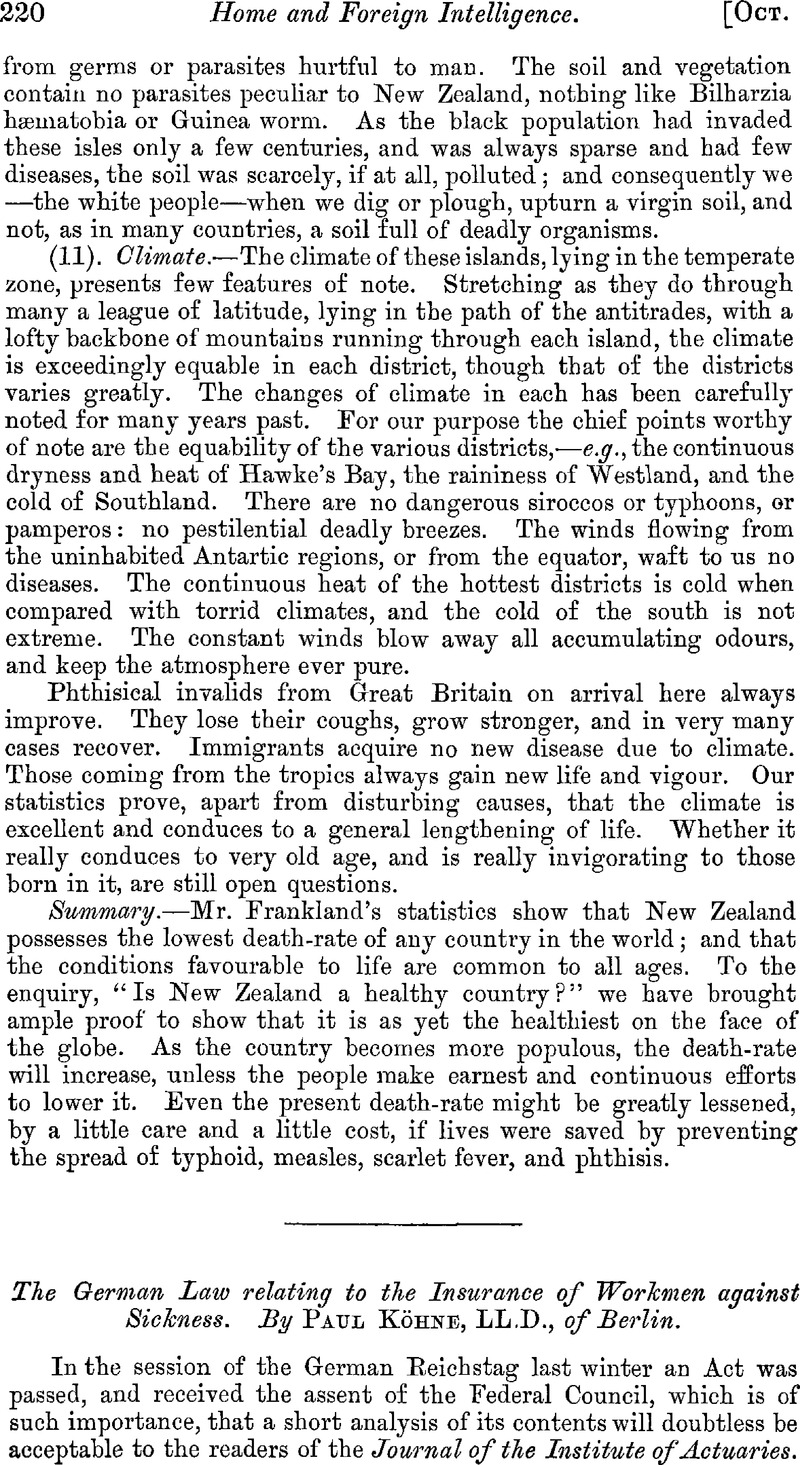No CrossRef data available.
Article contents
The German Law relating to the Insurance of Workmen against Sickness
Published online by Cambridge University Press: 18 August 2016
Abstract

- Type
- Home and Foreign Intelligence
- Information
- Copyright
- Copyright © Institute and Faculty of Actuaries 1884
References
page 222 note * In a letter explanatory of the word which has been translated “higher authorities”, Dr. Kohne says that it is almost impossible to give the exact English equivalent. The authority referred to may vary according to the State, or even according to different provinces in the same State; and hence the Act simply names it in general terms. “In the three German Republics, Hamburg, Bremen,
“ and Lubeck, it would probably be a superior municipal body; it would not be a
“ Minister of a State directly, for there are different magistrates between the
“ communes and the Minister, so that he would seldom be called into action; and
“ it could never be a Minister of the Empire. In the great majority of the
“ States the higher authorities have some resemblance to the English ‘sheriffs’, but
“ their powers and constitutions vary”. He adds, “I, for my part, would prefer the
“ expression ‘superintendent authorities’ to ‘higher authorities’. That would not only be the exact translation of the German expression, but would also render best the meaning of the German law. In almost all German States the communes have the self-government of their affairs, but all are subject to the inspection of State officials (or magistrates), whose duty it is to prevent transgressions of the particular State and Imperial laws, and to secure harmony between the municipal and general administration. These officials (or magistrates) have different names and powers in the different States, and the inspection forms only a part of their official duties. The Act intends to confer the inspection of the administration of this law by the communes on those authorities who, in other ways, have the superintendence over the communes”,—Ed. J.I.A.


